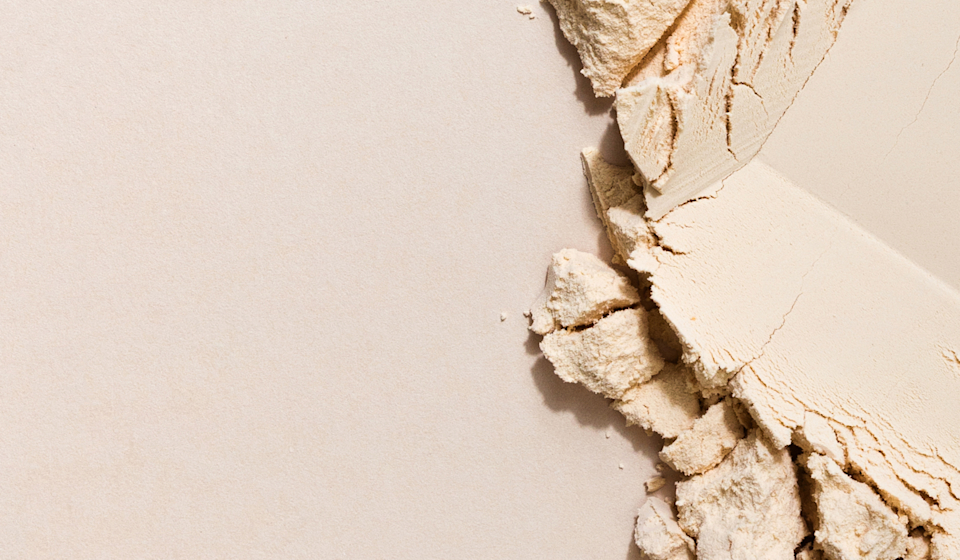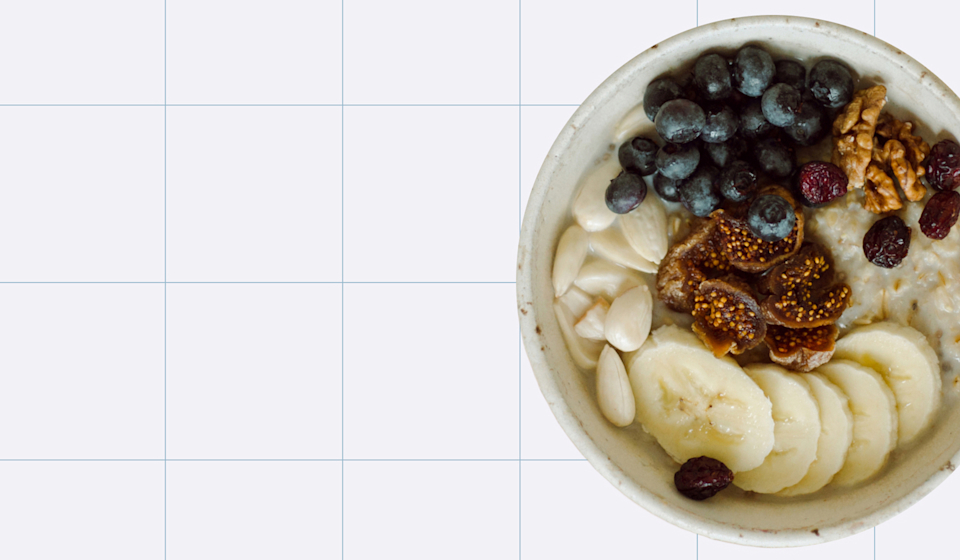Essential Takeaways
- Your body needs a combination of carbs and protein for proper muscle recovery.*
- Making a post-workout recovery meal is easier than you think—here's what to keep in mind.*
You may have heard of runners “carb-loading” several days before a marathon or weightlifters drinking protein shakes before a session. But what are the right foods to eat after your workout? Is it just as important? Let’s explore.
Repair muscles with protein.
Protein is often the lauded macronutrient amongst avid gym patrons, and for good reason. High intensity aerobic and resistance exercise can cause skeletal muscle damage, which can sometimes manifest as muscle soreness.*
This illustrates the necessity for protein intake because the body requires amino acids for muscle repair and muscle protein synthesis. Amino acids are the building blocks of protein and are required to build muscle, especially post-workout. Although it remains important to adequately refuel after a workout, you don't necessarily need to rush home every time you finish an exercise session. More on that later.* (1,3,4)
Refuel your glycogen stores with carbs.
Protein often gets all the attention when it comes to post-workout nutrition, but carbohydrate intake is important as well. The body requires carbohydrates to replenish glycogen stores in the muscle tissue, and provide energy throughout a workout.
Glycogen is a stored form of glucose (i.e. carbohydrate or sugar). It’s found mainly in the liver and skeletal muscle and is the major fuel source used by the body when engaging in cardio or strength training. Research shows that aerobic endurance is directly related to muscle glycogen stores, and the ability to continue to engage in strenuous exercise declines with the decline in muscle glycogen. (2)
Both carbs and protein are important, but how much?
Well, that depends on the type of exercise performed, intensity, duration, body composition, and goals. Generally, for protein intake, the Academy of Nutrition and Dietetics, Dietitians of Canada, and the American College of Sports Medicine recommend an overall protein intake of 1.2 to 2.0 g/kg for athletes (spread evenly throughout the day), with twenty to thirty grams of high-quality protein after exercise.* (1,3)
For carbohydrates, the International Society of Sports Nutrition (ISSN) recommends that athletes refuel with > 1.2 g of carbohydrate/kg/hour for four to six hours upon exercise termination.* (3,4)
Daily carbohydrate intake recommendations are based on exercise intensity (1):
- Low intensity or skill-based activities: 3-5 g carbohydrate/kg of athlete’s body weight/day
- Moderate exercise program (i.e. ~1 hour/day): 5-7 g carbohydrate/kg of athlete’s body weight/day
- Endurance program (i.e. 1-3 hour/day moderate to high intensity exercise): 6-10 g carbohydrate/kg of athlete’s body weight/day
While these general recommendations are a great starting point, we always recommend working with a sports nutritionist and/or registered dietitian to determine personalized nutrition recommendations based on individual needs.*
Does nutrition timing matter?
Nutrient timing is the act of eating foods at scheduled and measured times to optimize your performance. Nutritionists and sports scientists have debated for years on what the ideal nutrient timing is for high-performance individuals.
A long time ago, the golden window used to be within 30 minutes after your workout. This was also known as the anabolic window, and it’s what made athletes carry around a post-workout recovery milkshake with them everywhere they went. While post-exercise is important and planning remains key, recommendations for post-exercise protein consumption are somewhere between 0 and 2 hours after exercise completion. (1,3)
However, the size and timing of a pre-exercise meal can impact the amount of post-exercise protein needed. In other words? Your pre-workout nutrition can help your post-workout recovery. (3)
Don’t forget to rehydrate.
Carbs and protein aren’t the only things to consider post-workout. The American Council on Exercise (ACE) recommends drinking 16 to 24 ounces of water for every pound of body weight lost after exercise. (5)
And if you have a particularly sweaty session? Don’t forget about electrolytes as well. Try a sports drink or a sprinkle of sea salt and a squeeze of lemon juice (and some sugar) in your water.
Essential reading → The Science of Staying Hydrated (and How to Be Better At It)
7 easy post-workout meals to try:
- Chocolate milk. You'll be happy to hear that it's not just for school children. Chocolate milk is often heralded as the ultimate recovery meal because it's a 3-in-1 beverage for recovery. It provides fluids, carbs, and protein.
- Peanut butter on whole-grain toast. It doesn’t necessarily have to be peanut butter. You can use any variation of nut butter, hummus, or tahini. Sprinkle on hemp or chia seeds for some extra protein. And whole-grain toast or crackers provide carbohydrates and fiber. Win-win.
- Grilled chicken and brown rice. The staple of the clean-eater. Some even go as far as boiling the chicken for a low-fat, lean protein option.
- Tuna salad and crackers. Try this convenient post-workout snack that adds some healthy fats into your diet as well. Pro tip: try subbing out the mayo for plain greek yogurt for an extra dose of protein.
- Greek yogurt and granola. After a morning lift, this simple snack is easy to make. Add a few berries for extra carbs, fiber, and flavor.
- A bowl of cereal. It doesn’t get easier than a bowl of cereal and milk for a simple carb and protein combination. Adding fruit and nuts is a plus!
- Ritual’s Essential Protein Daily Shake 18+ Try a post-workout protein shake made from high-quality, non-GMO peas grown in the USA. Mix the protein powder in your favorite liquid or smoothie for an easy, on-the-go solution.*
On that note... Check out our easy-to-follow blueprint for a balanced smoothie, created in partnership with our in-house RD.
References:
- Thomas DT, Erdman KA, Burke LM. Position of the Academy of Nutrition and Dietetics, Dietitians of Canada, and the American College of Sports Medicine: Nutrition and Athletic Performance. J Acad Nutr Diet. 2016;116(3):501-528.
- Ivy J. Regulation of Muscle Glycogen Repletion, Muscle Protein Synthesis and Repair Following Exercise. Retrieved from Journal of Sports Science & Medicine. 2004 Sep; 3(3): 131–138.
- Kerksick, C.M., Arent, S., Schoenfeld, B.J. et al. International society of sports nutrition position stand: nutrient timing. J Int Soc Sports Nutr 14, 33 (2017). https://doi.org/10.1186/s12970-017-0189-4
- Dalleck L. The Science of Post-Exercise Recovery, Research from the ACE Scientific Advisory Panel. American Council on Exercise.
- American Council on Exercise. Healthy Hydration. Retrieved from the American Council of Exercise. 2009.











